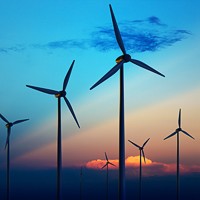22 Oct 2013 - 24 Oct 2013
Santa Fe Institute
Theory and Knowledge Systems for Sustainability Science
Citing the need for a “positive paradigm to guide a new generation of partnership between academia, government, business, and civil society,” IIASA Director and Chief Executive Officer Professor Dr. Pavel Kabat opened the workshop, co-organized by IIASA and SFI, which aimed to move forward the development of a conceptual framework for the complex field of sustainability research.
The presentations included modeling approaches that can inform strategies for sustainability and case studies that illustrated the complex challenges that social-ecological systems pose for management at the land/water/energy nexus. The discussions focused on developing testable hypotheses that integrate the insights from case studies into a predictive science of sustainability. The meeting reflected an initiative by the leadership of IIASA and SFI to build institutional cooperation between the two complementary research institutes.
Over the next two or three decades, urbanization, global infrastructure expansion and increases in consumption will require vast capital investments, locking in patterns of demand and supply for decades to come, with profound implications for climate change and the Earth’s environment. It is increasingly recognized that decisions at the smallest spatial and time scales aggregate to shape global long-term trajectories. Yet sustainability challenges are often focused on improving “fast” variables, such as crop yield and water quality, without recognition of slower, underlying dynamics, such as the supporting ecosystem services. The workshop will explore the kinds of experimental approaches that will build our ability to recognize, describe and intentionally manage slow variables in physically, biologically and sociologically complex systems that affect humanity’s ability to satisfy its needs sustainably. A mature, predictive science of sustainability, robustly grounded in complex systems theory, is needed to guide the exploitation of Earth’s resources toward a more sustainable operating space for both people and the planet.
This workshop brings together leaders from SFI, IIASA and the broader research community to consider a framework for systematic inquiry to undergird predictive, hypothesis-driven, empirically testable practice.
Full program and agenda


